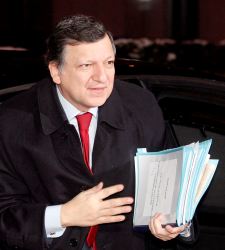
The Tobin tax is like the flue virus: it evolves and reappears incredibly fast. It is named for the Nobel Prize-winning economist who four decades ago developed the tax as a penalty on currency speculation. And here it is today, alive and wagging its tail like few other proposals among policy and social issues.
The European Comission revived the Tobin tax last week. Brussels had two alternatives. The first was to propose a cutback for the EU budget during fiscal years 2014-2020 (as Germany, the Netherlands, the United Kingdom and France demanded in order to restrain their contributions to Europe and stabilize their debts and national deficits). The second was to increase monetary pressure.
As the EU governing body is directed by policy (with the conservative Portuguese José Manuel Durao Barroso as president), the temptation to levy more taxes has been irresistible. The version of the Tobin tax employed by the eurócratas would be applied to financial transactions. The details would not be solidified until after the summer.
Yet it is not entirely clear if the Tobin tax would apply to stock share transactions (bonds, derivatives, etc.). Foreign exchange transactions would likely remain exempt because there would be legal problems. As a function of the GDP, the tax rate would waver between 0.1% and 0.01%.
Translated and Edited in English by Brandon Dyches and Jose L. De Haro